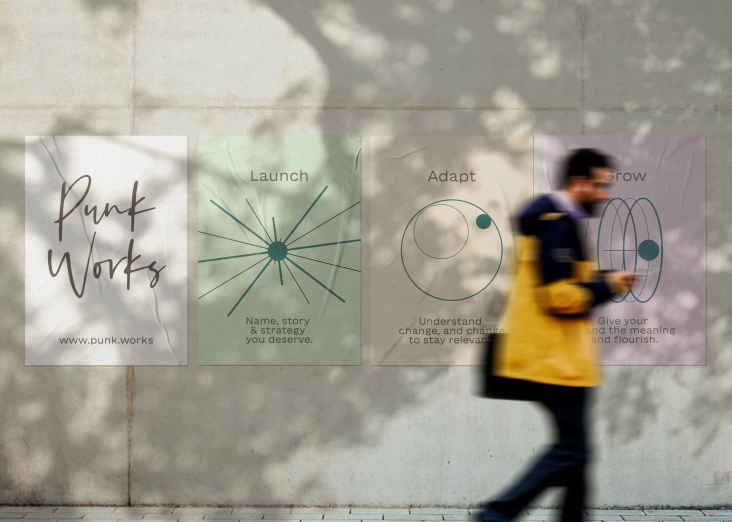Brett Morgen on Bowie, his BAFTA nomination and being inspired to live a fulfilled life
With a BAFTA nomination for Best Documentary, Moonage Daydream takes viewers on an immersive and experiential journey into the world of the chameleonic artist Bowie, and it's a kaleidoscopic adventure.
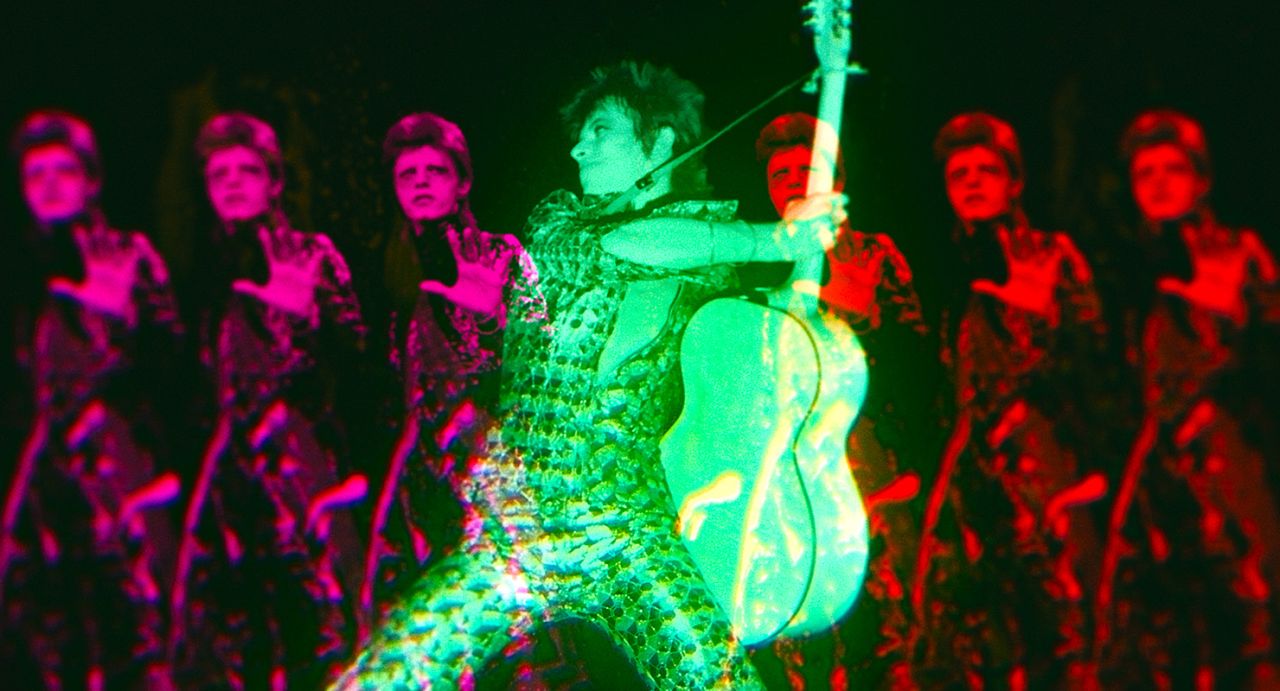
© Moonage Daydream – Brett Morgen. Courtesy of Universal Pictures UK
Few people haven't been left impacted or inspired by the late singer David Bowie. And director, writer, editor and producer Brett Morgen was among them. But he didn't expect to make a piece of work honouring Bowie's legacy or to end up exploring the many sides of the creative chameleon.
The project emerged following Morgen's biopic on rock star Kurt Cobain, Montage of Hack, and his subsequent desire to create music documentary experiences around his subjects rather than conform to the chronological biography format popular in the genre.
"My films are not about presenting facts and information, but trying to present the subjects in a uniquely-cinematic manner," says Morgen. "I aim to create what you can't get from a book."
What was initially supposed to be an experiential music series for the IMAX turned into a full-blown immersive feature about Bowie – interesting, given the star's previous aversion to participating in traditional talking head documentaries.
"I think he felt that in those sorts of films, the experts end up owning the narrative," says Morgen, who reached out to the Bowie estate before his death in 2016 and was invited in, only to learn just how much of an archivist the musician was.
"He had saved everything over the years. He just wasn't sure what it would be used for. The estate and I recognised our mutual interests and began pursuing the Bowie project. But it was never officially authorised by him – it wasn't ever going to be a Bowie-on-Bowie expose, but a Morgen-on-Bowie interpretation and I embraced that."
Given Bowie's own ability to metamorphose – in style, music and through his relation to the world – it could easily have been intimidating trying to capture or imitate his talent on-screen. Instead, Morgen was inspired by his approach: "If there's anything we've learned from Bowie, it's to be fearless and audacious with how we approach art, to not be afraid to stumble and make mistakes. There are no mistakes; there are only happy accidents."
Rifling through the archives and media related to Bowie's 50-year-strong career was no easy feat, but it provided Morgen with a structure for the script, something he knew from the get-go would be far from linear.
"I didn't want the audience to feel that they knew where they were going," says Morgen. "I structured the film by applying Joseph Campbell's Hero's Journey concept and used David's own journeys to understand the challenges he was setting for himself to eventually arrive at where he got to. But David's art is also very much at the forefront of the narrative and the storytelling. His art is the best form of expression and the only way to present his journey. The song choices played a big role in shaping what became an avant-garde jukebox musical."
What emerged during the process of researching Bowie was just how consistent he was philosophically, spiritually and creatively despite moving through mediums and different forms of expression: "His through line was transience and permanence."
This focus allowed Morgen to categorise and thematise sections of his life and creative output to shape the film while avoiding repetition and presenting information without it feeling overt.
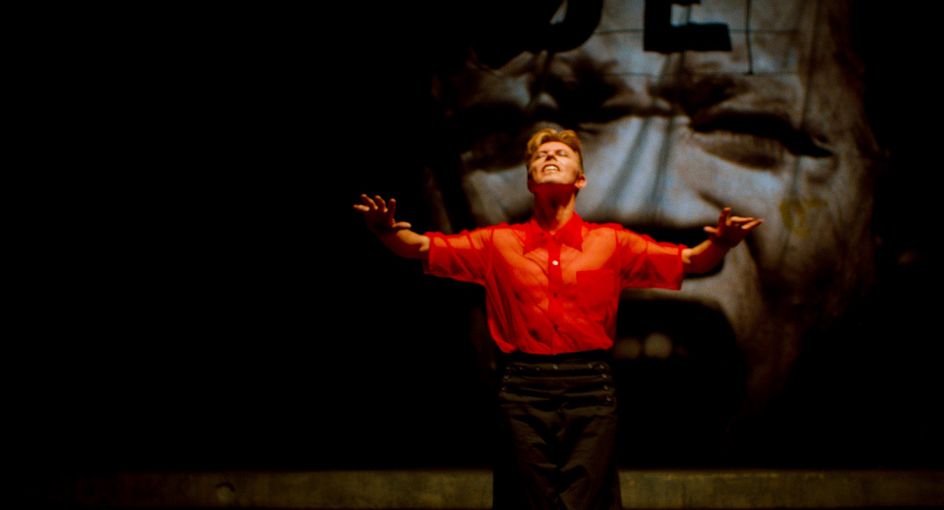
© Moonage Daydream – Brett Morgen. Courtesy of Universal Pictures UK
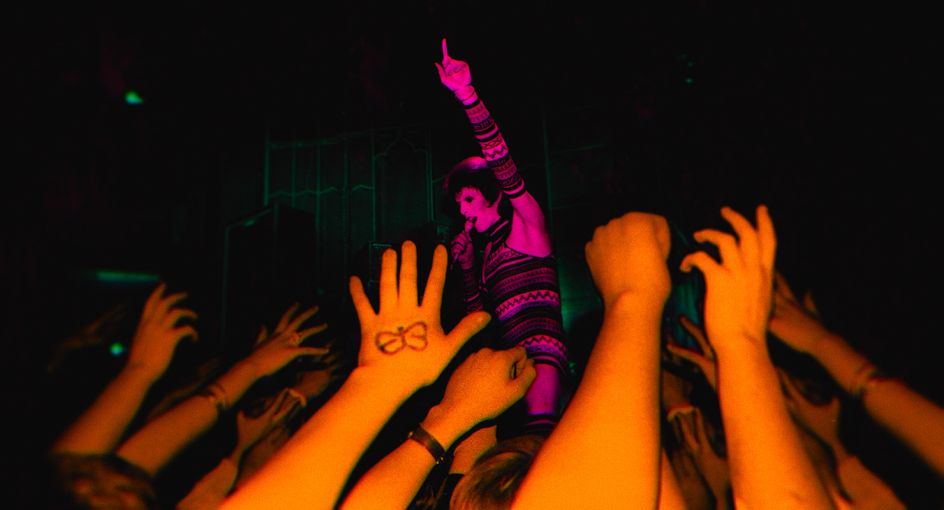
© Moonage Daydream – Brett Morgen. Courtesy of Universal Pictures UK
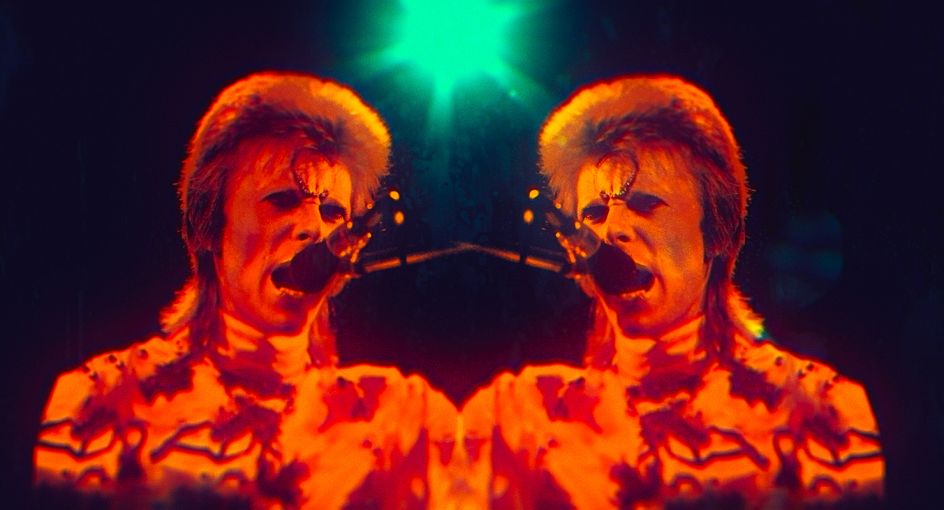
© Moonage Daydream – Brett Morgen. Courtesy of Universal Pictures UK
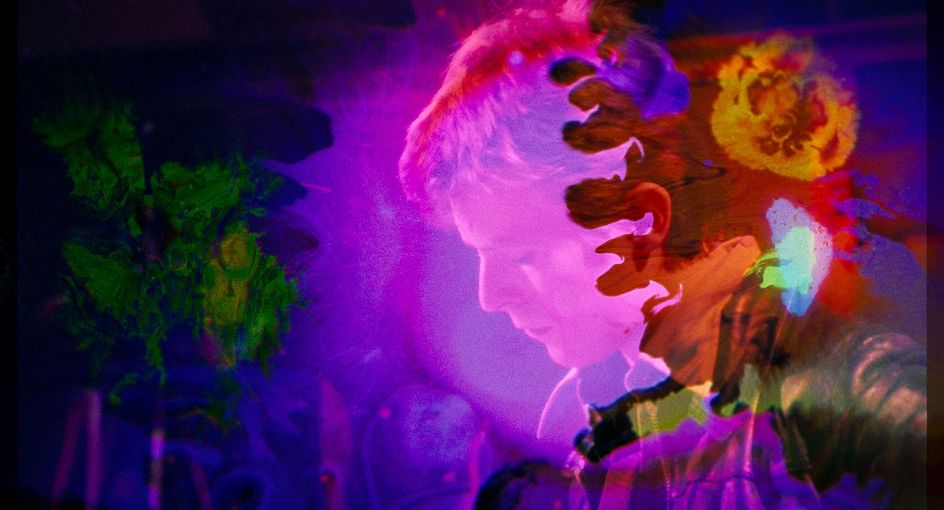
© Moonage Daydream – Brett Morgen. Courtesy of Universal Pictures UK
His generosity was another characteristic that Morgen unearthed during research and that he found inspiring.
"In every moment that I encountered his media, he was always present," he says. "He was always viewing each moment in life as an opportunity for a change of some sort. I've never seen that in a subject. Most people, take Kurt Cobain, for instance, get annoyed when they have to do press interviews and have to talk about the same thing. But David would always find an opportunity for collective growth between you and him. There was a warmth of generosity, intelligence and a keen understanding of the brevity of life. And I really believed he tried to make the most of every moment."
Bringing all these facets to the film's surface and having a seamless narrative was a job for the editing room – the kaleidoscopic nature of the documentary fuses never-before-seen footage, performances and music, and Morgen made sure to prioritise imagery and sound throughout. Knowing that there was limited follow-cam footage of Bowie, with him being notoriously private, Morgen decided early on to incorporate images of the art and artists that inspired him directly. And he was scrupulous about collecting these.
"During the research phase, I would write down every time Bowie made a reference," he says. "When we got to the edit, I had a list of choreographers, painters, photographers, different movements and filmmakers, just a wealth of material I could draw upon. Bowie's music was filled with literary references, and it would send us down all sorts of rabbit holes. So, I liked the idea of building that into the film's design."

© Moonage Daydream – Brett Morgen. Courtesy of Universal Pictures UK
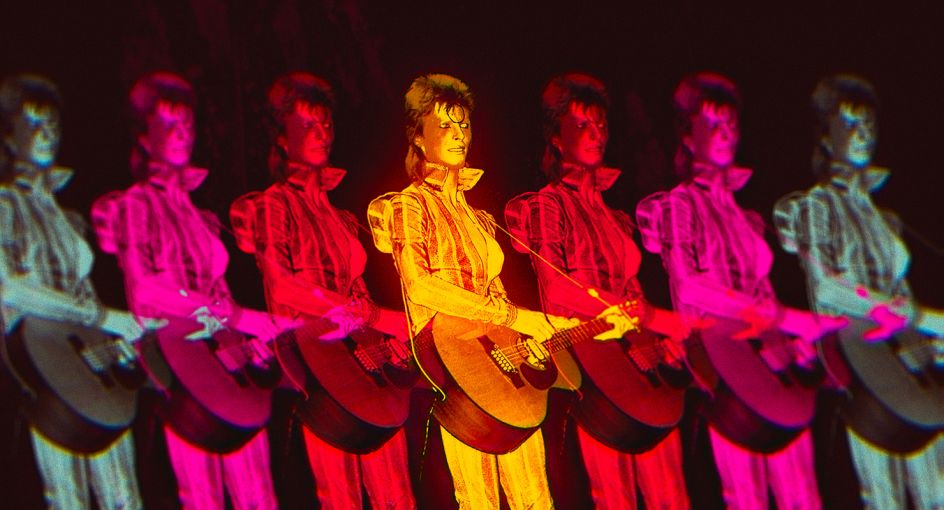
© Moonage Daydream – Brett Morgen. Courtesy of Universal Pictures UK
Using this as the film's backdrop and centring on Bowie, the performer rather than David Jones, the person, made navigation clearer for Morgen: "Everything he did was performative – whether he's on stage, in an interview or in public. It doesn't mean it's not honest or authentic; it's quite the opposite; it's a representation of him within a moment in time, as opposed to playing the role of another person."
Morgen's presentation of Bowie was meant as an anti-biopic, a way of bucking the trend and avoiding cliché. While it highlights his accolades and achievements, it's a journey into the world of the performer, as seen through his public appearances.
Speaking to Morgen ahead of the BAFTAs, he was excited to be nominated for his work. "As an American, we certainly have an inferiority complex to the British. It's always a big deal to be recognised for anything over here. And with Bowie being one of the great English exports of the last 75 years – he's a great ambassador not just for Britain and Europe but globally. This BAFTA has particular weighted significance and importance. The film presents a roadmap to leading a more satisfying and fulfilled life. Listening to David has definitely transformed my life and work as an artist."
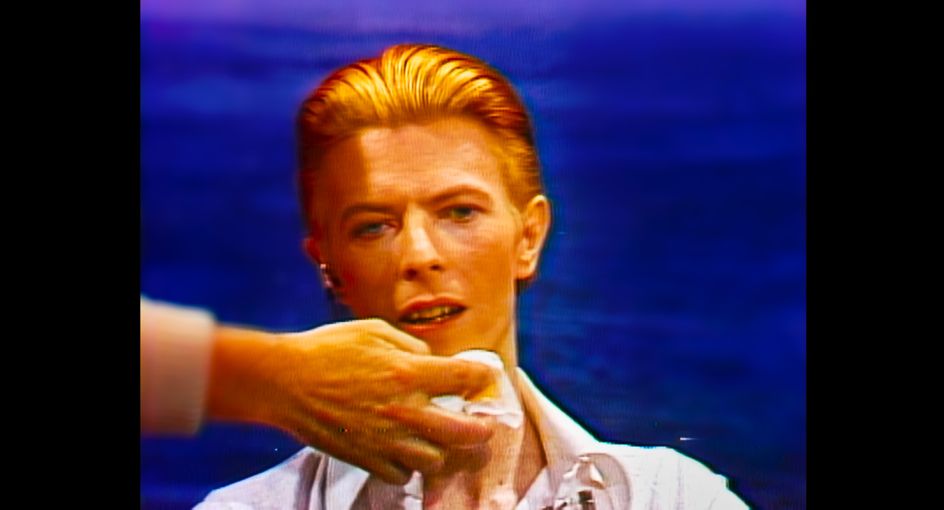
© Moonage Daydream – Brett Morgen. Courtesy of Universal Pictures UK
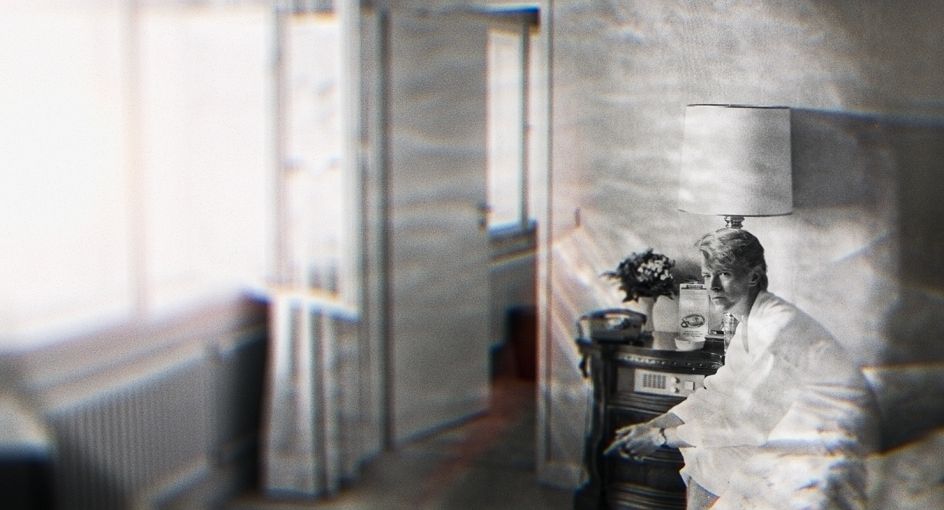
© Moonage Daydream – Brett Morgen. Courtesy of Universal Pictures UK

 for Creative Boom](https://www.creativeboom.com/upload/articles/06/063686a9a3b095b9b1f0e95df917ed4bd342be1b_732.jpg)



 using <a href="https://www.ohnotype.co/fonts/obviously" target="_blank">Obviously</a> by Oh No Type Co., Art Director, Brand & Creative—Spotify](https://www.creativeboom.com/upload/articles/6e/6ed31eddc26fa563f213fc76d6993dab9231ffe4_732.jpg)
 by Tüpokompanii](https://www.creativeboom.com/upload/articles/58/58684538770fb5b428dc1882f7a732f153500153_732.jpg)








's ad for the Super Bowl 2023](https://www.creativeboom.com/upload/articles/ab/ab29e3ffef115ddd4d5c6d0d4e59c3e9deb2c5f9_732.jpg)



